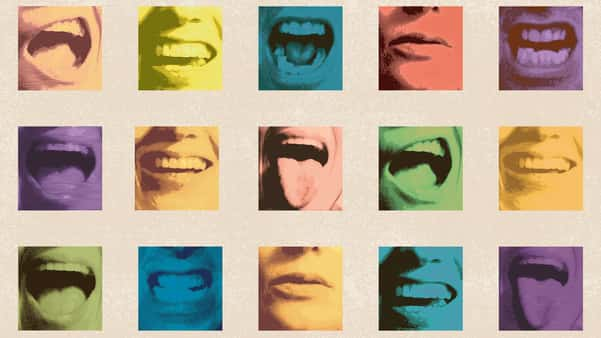Crosswords Slow Memory Loss More Than Video Games
![]()
In a new study, older adults with mild cognitive impairment experienced improved brain function after doing crossword puzzles regularly for 3 months.

October 28, 2022
Fact-Checked

People of a certain age are bombarded with ads for brain games promising to help keep their mind sharp. Now, a new study suggests that a pretty old-school pastime — the humble crossword puzzle — may actually be better for the aging brain than new-fangled video games.
“This is the first study to document both short-term and longer-term benefits for home-based crossword puzzles training compared to another intervention,” lead study author Davangere Devanand, MD, a professor and director of geriatric psychiatry at Columbia University Irving Medical Center in New York City, said in a statement.
“The results are important in light of difficulty in showing improvement with interventions in mild cognitive impairment,” Devanand said.
Millions of Americans suffer from mild cognitive impairment, which occurs when a person has difficulty remembering, concentrating, learning new things, and making daily decisions, according to the Centers for Disease Control and Prevention (CDC) (PDF). Symptoms can range from mild to severe, worsen over time, and in some cases lead to Alzheimer’s disease and other forms of dementia.
While some previous research suggests that games challenging the brain can help boost cognitive function or slow declines in key skills like recall and decision-making, results have been uneven and offered a mixed picture of what specific types of activities might be most beneficial. Some studies that have found crossword puzzles particularly beneficial have also focused on people without mild cognitive impairment.
For the new study, researchers randomly assigned 107 adults ages 55 and older with mild cognitive impairment to do online crossword puzzles or brain-training games involving memory tests, matching tasks, spatial recognition challenges, and processing speed tasks. All of the participants were asked to do four 30-minute sessions weekly over three months, then a series of booster sessions over the 78-week study period.
People assigned to do crosswords scored better on cognitive tests at 12 and 78 weeks than their counterparts who did the brain-training games, according to study results published in the The New England Journal of Medicine. People who did crosswords also had better overall daily functioning and less shrinkage of brain tissue on MRI scans by the end of the trial.
When researchers looked at the severity of cognitive impairment, they found that only crosswords were beneficial for people with more advanced symptoms. Individuals with milder symptoms appeared to benefit from both crosswords and from brain training games, however.
https://imasdk.googleapis.com/js/core/bridge3.555.1_en.html#goog_1724740510 Top Stories00:0700:24
Top Stories00:0700:24


 If I Didn’t Laugh
If I Didn’t Laugh
Beyond its small size, another limitation of the study is that participants were highly educated, making it possible that results might not reflect what would happen for people with lower education levels, the study team noted. The study was also conducted during the COVID-19 pandemic, without the benefit of in-person training sessions, and it’s possible these circumstances influenced the outcomes.
Common symptoms of cognitive impairment, according to the CDC, can include:
- Memory loss
- Frequently asking the same question or repeating the same question over and over
- Not recognizing familiar people and places
- Having trouble exercising judgment, such as knowing what to do in an emergency
- Changes in mood or behavior
- Vision problems
- Difficulty planning and carrying out tasks, such as following a recipe or keeping track of monthly bills
A wide variety of factors can increase the risk of developing cognitive impairment, including a poor diet, physical inactivity, insufficient sleep, smoking, drinking too much alcohol, and social isolation, according to the National Institute on Aging.
While activities that keep the mind sharp can help minimize the risk, so can getting lots of exercise, healthy eating habits, managing stress, and maintaining friendships and social connections.
Crosswords Slow Memory Loss More Than Video Games
In a new study, older adults with mild cognitive impairment experienced improved brain function after doing crossword puzzles regularly for 3 months.

October 28, 2022
Fact-Checked

People of a certain age are bombarded with ads for brain games promising to help keep their mind sharp. Now, a new study suggests that a pretty old-school pastime — the humble crossword puzzle — may actually be better for the aging brain than new-fangled video games.
“This is the first study to document both short-term and longer-term benefits for home-based crossword puzzles training compared to another intervention,” lead study author Davangere Devanand, MD, a professor and director of geriatric psychiatry at Columbia University Irving Medical Center in New York City, said in a statement.
“The results are important in light of difficulty in showing improvement with interventions in mild cognitive impairment,” Devanand said.
Millions of Americans suffer from mild cognitive impairment, which occurs when a person has difficulty remembering, concentrating, learning new things, and making daily decisions, according to the Centers for Disease Control and Prevention (CDC) (PDF). Symptoms can range from mild to severe, worsen over time, and in some cases lead to Alzheimer’s disease and other forms of dementia.
While some previous research suggests that games challenging the brain can help boost cognitive function or slow declines in key skills like recall and decision-making, results have been uneven and offered a mixed picture of what specific types of activities might be most beneficial. Some studies that have found crossword puzzles particularly beneficial have also focused on people without mild cognitive impairment.
For the new study, researchers randomly assigned 107 adults ages 55 and older with mild cognitive impairment to do online crossword puzzles or brain-training games involving memory tests, matching tasks, spatial recognition challenges, and processing speed tasks. All of the participants were asked to do four 30-minute sessions weekly over three months, then a series of booster sessions over the 78-week study period.
People assigned to do crosswords scored better on cognitive tests at 12 and 78 weeks than their counterparts who did the brain-training games, according to study results published in the The New England Journal of Medicine. People who did crosswords also had better overall daily functioning and less shrinkage of brain tissue on MRI scans by the end of the trial.
When researchers looked at the severity of cognitive impairment, they found that only crosswords were beneficial for people with more advanced symptoms. Individuals with milder symptoms appeared to benefit from both crosswords and from brain training games, however.
https://imasdk.googleapis.com/js/core/bridge3.555.1_en.html#goog_1724740510 Top Stories00:0700:24
Top Stories00:0700:24


 If I Didn’t Laugh
If I Didn’t Laugh
Beyond its small size, another limitation of the study is that participants were highly educated, making it possible that results might not reflect what would happen for people with lower education levels, the study team noted. The study was also conducted during the COVID-19 pandemic, without the benefit of in-person training sessions, and it’s possible these circumstances influenced the outcomes.
Common symptoms of cognitive impairment, according to the CDC, can include:
- Memory loss
- Frequently asking the same question or repeating the same question over and over
- Not recognizing familiar people and places
- Having trouble exercising judgment, such as knowing what to do in an emergency
- Changes in mood or behavior
- Vision problems
- Difficulty planning and carrying out tasks, such as following a recipe or keeping track of monthly bills
A wide variety of factors can increase the risk of developing cognitive impairment, including a poor diet, physical inactivity, insufficient sleep, smoking, drinking too much alcohol, and social isolation, according to the National Institute on Aging.
While activities that keep the mind sharp can help minimize the risk, so can getting lots of exercise, healthy eating habits, managing stress, and maintaining friendships and social connections.





















